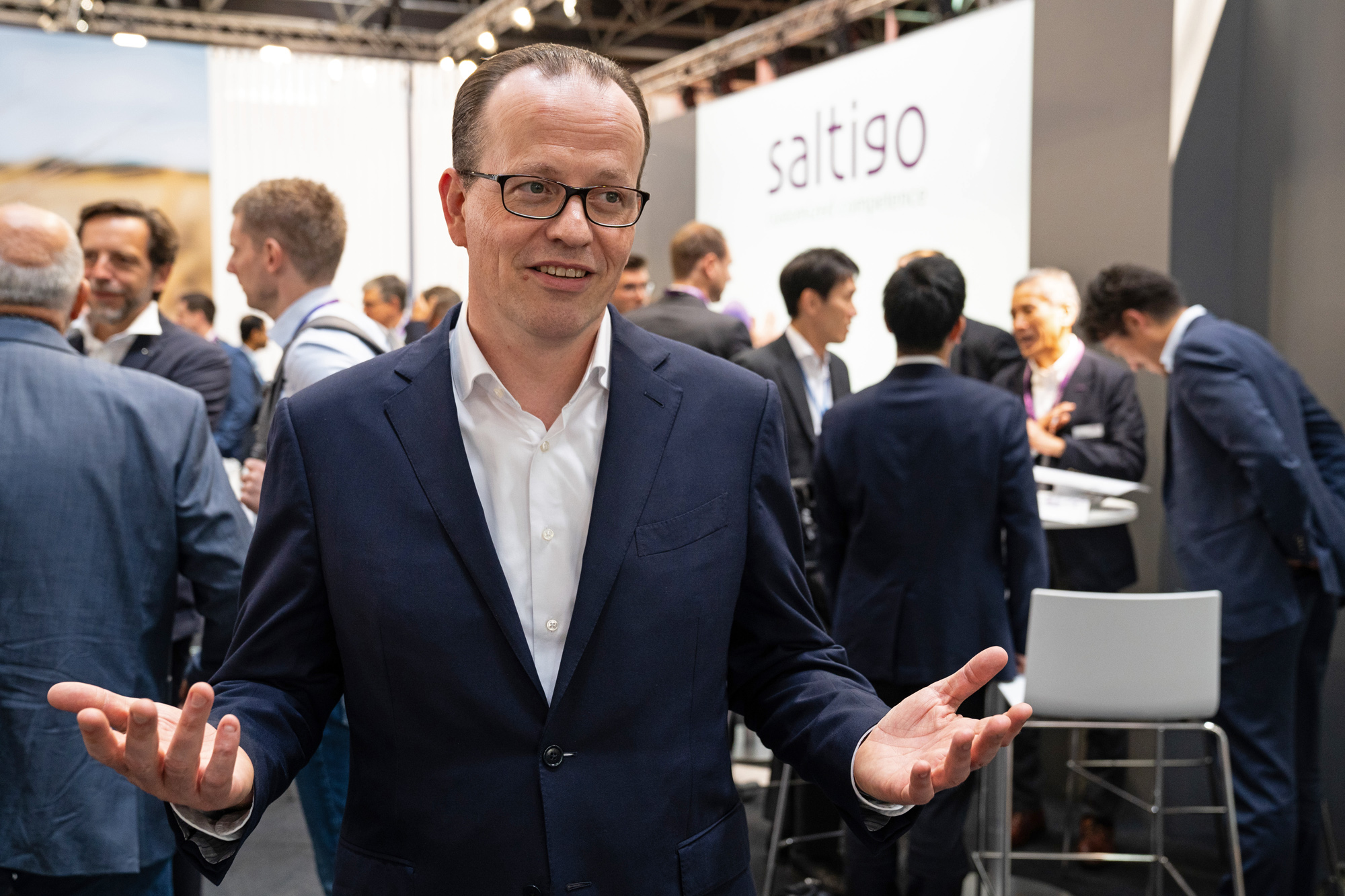
Feature article – Saltigo rides out the cycle
Submitted by:
Andrew Warmington
Market and sustainability trends are positive drivers for Saltigo, despite the agro downturn. Andrew Warmington met up with the new CEO at Chemspec Europe
Chemspec Europe 2024 in Düsseldorf on 19-20 June was the first for the new CEO of Saltigo. Michael Schäfer had been with the parent company Lanxess since 2007, mostly in the Material Protection Products business unit, which he headed for ten years before moving to take over at Saltigo in February.
Saltigo is a strong bellwether for the agrochemical field as one of the largest suppliers to it. It has not been an easy time in agro of late. As Schäfer noted, the industry moves in cycles and the ‘up’ part of the latest cycle was prolonged for a year by COVID-19. As a result the correction that has followed has been tougher and more prolonged too.
“We have several things coming together right now,” he said. “The cycle is at the bottom, with the price of wheat and inventory matters throughout the value chain. A second element is the Chinese capacity build-up we have seen; they are far overinvested into some generic positions, which has driven down prices for some key generics we have never seen before. This combination is dragging on the correction time.”
Need for speed
However, Schäfer added, away from monthly results, the outlook is more positive. The agrochemical industry has a clear commitment to the European supplier base. As a result, “I feel I have all the cards on the table to be the winner in Europe.”
Saltigo, in his view, is one of the leaders in this field both in sustainability and having “the most diverse and flexible technology assets”. Moreover, many competitors, particularly those under private equity ownership, have reduced their in-house capabilities and increasingly value those that Saltigo can offer, in development as well as production, as customers drive towards complex products and speed.
One reason why speed is becoming more important, added Dr Christoph Schaffrath, head of marketing and sales, is that new products are coming under cost pressure earlier. “The quicker you can get products on the market the better. We have that speed because of the close proximity of almost all our assets in Leverkusen. This is the feedback we are getting from all of our innovator customers.”
Although the trend towards Asia and India in particular is likely to continue, Schäfer said, there are plenty of reasons why it might not in this time of geopolitical issues, supply chain disruptions and sustainability focus. “There are many things which are making people nervous about betting all their cards on Asia, including India. So if that trend gets more hits, we are doing even better.”
Opportunities outside agro
In addition, Schäfer stressed, it is not all about agro for Saltigo; there is a lot going on in the non-agro world too. “There are technology developments that need new chemistry in the market. The customers want technologically advanced suppliers, who can help them to get things rolling quickly. And they want European or US assets for that.”
Digitalisation is playing a key role too. Localising production and supply chains means that different materials are needed and Saltigo is seeing its pipelines are beginning to fill up with non-agro projects. For example its unique ability to scale up metathesis is widely recognised, Schaffrath said, “and people are coming to us because they need us”.
“People who need these new technologies are not looking for the cheapest option,” said Schäfer. “They are asking ‘How protected is it?’, ‘How fast is it?’, ‘Do I have somebody who can play the whole chemical game for me?’, ‘Is the supply chain secure?’ and ‘Is the knowledge transfer secure?’.” With a base in the heart of Germany, Saltigo is protected as well as anyone can be from geopolitical issues.
The other key aspect is sustainability. “You really need to have an in-depth understanding of it to reduce the carbon footprints of products in long synthesis chains by 90%,” Schaffrath said. “We have been approached by a number of companies from outside the agrochemical and pharmaceutical world to do this. It’s not just about the right raw materials, it’s about setting up the whole infrastructure to drive this down.”
Saltigo is good at this – and so is its mother company, Schäfer continued. “Lanxess has pushed sustainability extremely aggressively in its internal targets. It has taken the lead at pretty much all levels possible and has implemented a very strong competence level internally on how to make it happen in reality.”
“Lanxess is an excellent platform for sustainability at Saltigo because it is both a technical and an intellectual topic there. It has been a surprise to me personally. In my former world at Lanxess, there were sustainability experts here and there. In Saltigo, I find sustainability to be an element that is sunk deeply in chemistry and process technology.”
